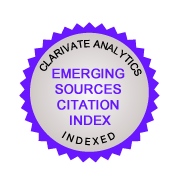Shipping Management Simulation Game for Teaching and Learning in Higher Education: A Quasi-Experimental Study
DOI:
https://doi.org/10.32890/mjli2019.16.2.6Keywords:
Simulation board game, shipping management, game-based learning, game mechanics, intended learning outcomesAbstract
Purpose – This study aims to examine the effects of a simulation board game for teaching and learning shipping management at higher education. A framework of comprehensive shipping operation was developed according to the syllabus of the Shipping Management course in Universiti Utara Malaysia. The course core content in the game covers two main services—liner service and tramp service in the shipping industry.
Methodology – A quasi-experimental research design has been adopted to measure the effectiveness of the board game in post-learning. Data were gathered from a sample of 73 undergraduate students who enrolled in Shipping Management course using non-equivalent control group design. The data was analysed using McNemar Test to determine the effect of the students’ achievement.
Findings – The findings of this study revealed that using board game in learning activities can contribute to the improvement of students’ knowledge and skill. Further analysis indicated that there were differences in students’ achievement for the tramp services and liner services content. This improvement has boosted their confidence in making decision in solving problem related to the tramp services and liner services knowledge.
Significance – The framework for the shipping management board game aims to provide the best learning experience for students when they immerse into solving problems and making decisions in the game. The framework can be used as a benchmark in the practice of game-based learning, particularly by affording students to engage learning by doing. Furthermore, this framework introduces a tangible problem space through the board game, encouraging students to discover knowledge on their own pace in a non-threatening environment.




























